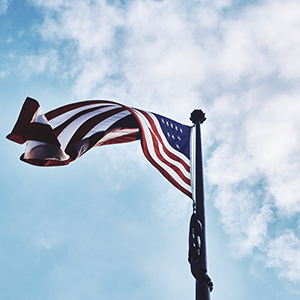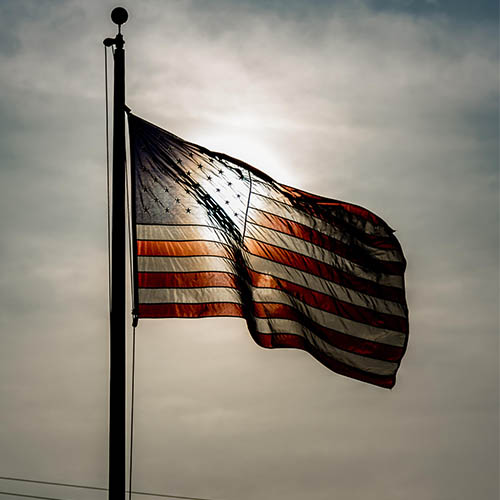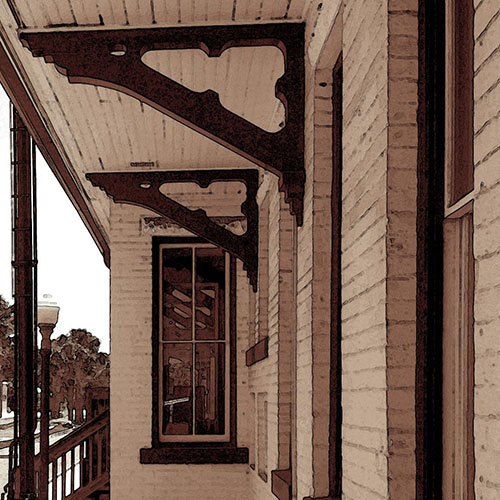Menu
Hot-Topics
February 19, 2026 | SCOTUS Reaffirms Fourth Amendment Standard for Police Responding to Household Emergencies
Category: Historical

Sturges v Crowninshield: Constitutionality of State Bankruptcy Laws
In Sturges v Crowninshield, 17 U.S. (4 Wheat.) 122 (1819), the U.S. Supreme Court considered whether a New York bankruptcy law, and its retroactive application, were constitutional. The justices concluded that federal power over bankruptcy was not ex...

United States v Hudson and Goodwin: Jurisdiction Over Criminal Matters
In United States v Hudson and Goodwin, 11 U.S. 32 (1812), the U.S. Supreme Court first considered whether the federal courts were authorized to hear criminal cases. The justices held that Congress must confer jurisdiction by statute in order for the ...

Brady v Maryland: Suppression of Evidence Violates Due Process
In Brady v Maryland, 373 U.S. 83 (1963), the U.S. Supreme Court held that prosecutors must fully disclose to the accused all exculpatory evidence in their possession. The Court’s holding is commonly known as the “Brady Rule.” The Fac...

Reynolds v Sims: Due Process and Legislative Apportionment
In Reynolds v Sims, 377 U.S. 533 (1964), the U.S. Supreme Court struck down Alabama’s legislative apportionment scheme. By a vote of 8-1, the justices held that the Fourteenth Amendment’s Equal Protection Clause requires that both houses of a ...

Selective Service Act of 1917
Enacted in the early days of World War I, the Selective Service Act of 1917 authorized the country’s first military draft. By the conclusion of the war, 24 million men had registered for military service. At the end of the Civil War, t...

The Pendleton Civil Service Act
The Pendleton Civil Service Act, which was enacted in 1883, established a merit-based system for federal employment. The landmark legislation effectively ended the controversial “spoils system,” which was largely based on political party affiliat...

Railroad Regulation Under the Elkins and Hepburn Acts
Understanding Railroad Regulation during our Country's Beginnings In the late 1880s and early 1900s, the railroads were essential to the U.S. economy. However, they were also susceptible to monopolies. As President, Theodore Roosevelt sought to stre...

Downes v. Bidwell: Does the Constitution Follow the Flag?
Downes v. Bidwell: Does the Constitution Follow the Flag? In Downes v. Bidwell, 182 U.S. 244 (1901), the U.S. Supreme Court held that the rights and protections of the Constitution do not automatically apply to U.S. territories. The case is one of t...

Bank of the United States v Deveaux: The Citizenship of Corporations
Bank of the United States v Deveaux: The Citizenship of Corporations In Bank of the United States v. Deveaux, 5 Cranch 61 (1809), the U.S. Supreme Court first considered the citizenship of corporations for the purposes of diversity jurisdiction. The...

Ware v Hylton: Supreme Court Power to Invalidate State Laws
Ware v Hylton: Supreme Court Power to Invalidate State Laws In Ware v. Hylton, 3 U.S. (3 Dall.) 199 (1796), the U.S. Supreme Court held that the federal courts are authorized to determine the constitutionality of state laws. The Court subsequently h...
Previous Articles
SCOTUS Decision in Bowe v. United States Is First of the 2026 Term
by DONALD SCARINCI on February 5, 2026
In Bowe v. United States, 607 U.S. ___ (2026), the U.S. Supreme Court held that Title 28 U.S.C. § ...
SCOTUS Rules State Can’t Immunize Parties from Federal Civil Liability
by DONALD SCARINCI on January 29, 2026
In John Doe v. Dynamic Physical Therapy, LLC, 607 U.S. ____ (2025) the U.S. Supreme Court held that...
Supreme Court to Address Racial Discrimination in Jury Selection
by DONALD SCARINCI onWhile the U.S. Supreme Court has concluded oral arguments for the year, it continues to add cases t...
The Amendments
-
Amendment1
- Establishment ClauseFree Exercise Clause
- Freedom of Speech
- Freedoms of Press
- Freedom of Assembly, and Petitition
-
Amendment2
- The Right to Bear Arms
-
Amendment4
- Unreasonable Searches and Seizures
-
Amendment5
- Due Process
- Eminent Domain
- Rights of Criminal Defendants
Preamble to the Bill of Rights
Congress of the United States begun and held at the City of New-York, on Wednesday the fourth of March, one thousand seven hundred and eighty nine.
THE Conventions of a number of the States, having at the time of their adopting the Constitution, expressed a desire, in order to prevent misconstruction or abuse of its powers, that further declaratory and restrictive clauses should be added: And as extending the ground of public confidence in the Government, will best ensure the beneficent ends of its institution.
Awards





